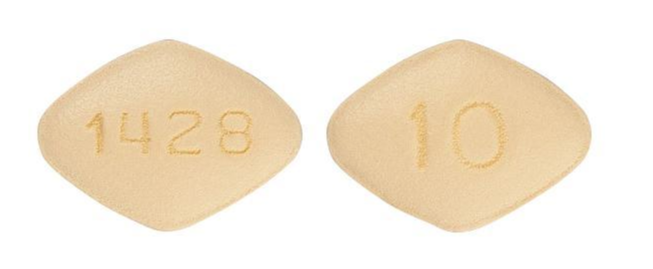Discover the revolutionary breakthrough for thousands of Australians with chronic heart failure!
By
VanessaC
- Replies 4
In a transformative development for healthcare in Australia, Health Minister Mark Butler has unveiled a significant medical shakeup that promises to bring tangible relief to thousands of Australians grappling with chronic heart failure.
A newfound ray of hope emerges as a game-changing medication comes within reach for many, thanks to its incorporation into the Pharmaceutical Benefits Scheme (PBS).
Cardiovascular diseases remain one of the leading causes of death in Australia, with chronic heart failure posing a persistent challenge, not only burdening individuals but also the healthcare system.
An estimated 480,000 Australians live with heart failure, which is characterised by the heart's diminishing ability to pump blood efficiently.
The condition is notorious for its debilitating symptoms and the high rate of hospitalisations it engenders—around 180 admissions each day, attributing to substantial healthcare costs and personal suffering.
However, a significant positive turn has been signalled with dapagliflozin, marketed under the brand name Forxiga, being greenlit by the government for inclusion in the PBS specifically to target chronic heart failure in patients whose left ventricular ejection fraction is above 40 per cent.
This represented a notable expansion from the drug's previous listing for treating type two diabetes.
Quality of life and clinical outcomes are expected to improve for roughly 98,000 patients who stand to benefit from this medication.
Renowned for its heart-protecting properties, Forxiga can lessen the likelihood of hospitalisation due to heart failure, as well as reduce the risks associated with cardiovascular death, particularly when utilised alongside standard care.
Without the PBS listing, a year's worth of treatment with Forxiga could exceed $660—a prohibitive cost for many.
The inclusion of this medication in the PBS means that life-enhancing treatment now becomes accessible at a fraction of that price.
Cardiologist Alicia Chan, who specialises in heart failure, commended the expanded PBS listing.
'My aim as a cardiologist is to work closely with my patients living with heart failure to manage their condition, which can help them stay out of hospital and reduce the risk of cardiovascular death,' Dr Chan said.
Furthermore, the listing of Forxiga follows closely on the heels of another heart failure medication, Jardiance (empagliflozin), also recently endorsed by the PBS.
This gives patients and healthcare providers the ability to choose between two advanced treatments, tailoring care to individual patient needs.
'About 180 Australians are hospitalised every single day with symptomatic chronic heart failure and they are often repeated hospitalisations,' Health Minister Mark Butler said.
'The listing of Forxiga will give patients access to a treatment at a more affordable cost than they would otherwise pay.'
For individuals and advocacy groups such as Hearts 4 Heart, led by Founder and Chief Executive Taryn Hall, this shift has welcomed a new era of treatment potential.
'Early diagnosis and proper treatment are key to enable people with heart failure to live a full and active life,' Ms Hall said.
'As an organisation supporting people living with heart failure, we see the importance of new treatment options.'
According to Mr Butler, an inclusive approach to healthcare forms a significant pillar of the initiatives undertaken by the Albanese government.
With Forxiga’s inclusion in the PBS, he also added that the Albanese government has since approved funding for 171 additional listings.
 Do you, or anyone you know, suffer from chronic heart failure? Don’t forget to share this article with them, and let us know your thoughts on this latest development in the comments below.
Do you, or anyone you know, suffer from chronic heart failure? Don’t forget to share this article with them, and let us know your thoughts on this latest development in the comments below.
A newfound ray of hope emerges as a game-changing medication comes within reach for many, thanks to its incorporation into the Pharmaceutical Benefits Scheme (PBS).
Cardiovascular diseases remain one of the leading causes of death in Australia, with chronic heart failure posing a persistent challenge, not only burdening individuals but also the healthcare system.
An estimated 480,000 Australians live with heart failure, which is characterised by the heart's diminishing ability to pump blood efficiently.
The condition is notorious for its debilitating symptoms and the high rate of hospitalisations it engenders—around 180 admissions each day, attributing to substantial healthcare costs and personal suffering.
However, a significant positive turn has been signalled with dapagliflozin, marketed under the brand name Forxiga, being greenlit by the government for inclusion in the PBS specifically to target chronic heart failure in patients whose left ventricular ejection fraction is above 40 per cent.
This represented a notable expansion from the drug's previous listing for treating type two diabetes.
Quality of life and clinical outcomes are expected to improve for roughly 98,000 patients who stand to benefit from this medication.
Renowned for its heart-protecting properties, Forxiga can lessen the likelihood of hospitalisation due to heart failure, as well as reduce the risks associated with cardiovascular death, particularly when utilised alongside standard care.
Without the PBS listing, a year's worth of treatment with Forxiga could exceed $660—a prohibitive cost for many.
The inclusion of this medication in the PBS means that life-enhancing treatment now becomes accessible at a fraction of that price.
Cardiologist Alicia Chan, who specialises in heart failure, commended the expanded PBS listing.
'My aim as a cardiologist is to work closely with my patients living with heart failure to manage their condition, which can help them stay out of hospital and reduce the risk of cardiovascular death,' Dr Chan said.
Furthermore, the listing of Forxiga follows closely on the heels of another heart failure medication, Jardiance (empagliflozin), also recently endorsed by the PBS.
This gives patients and healthcare providers the ability to choose between two advanced treatments, tailoring care to individual patient needs.
'About 180 Australians are hospitalised every single day with symptomatic chronic heart failure and they are often repeated hospitalisations,' Health Minister Mark Butler said.
'The listing of Forxiga will give patients access to a treatment at a more affordable cost than they would otherwise pay.'
For individuals and advocacy groups such as Hearts 4 Heart, led by Founder and Chief Executive Taryn Hall, this shift has welcomed a new era of treatment potential.
'Early diagnosis and proper treatment are key to enable people with heart failure to live a full and active life,' Ms Hall said.
'As an organisation supporting people living with heart failure, we see the importance of new treatment options.'
According to Mr Butler, an inclusive approach to healthcare forms a significant pillar of the initiatives undertaken by the Albanese government.
With Forxiga’s inclusion in the PBS, he also added that the Albanese government has since approved funding for 171 additional listings.
Key Takeaways
- Thousands of Australians suffering from chronic heart failure will have access to cheaper medication, thanks to the addition of a new drug to the Pharmaceutical Benefits Scheme (PBS).
- Dapagliflozin, a medication initially used for treating type two diabetes, will now be available for chronic heart failure patients with a specific heart condition, providing a potential life-saving option.
- The subsidy will significantly reduce the cost of the medication from over $660 per year to a more affordable price, giving nearly 98,000 patients a new treatment choice.
- Health professionals and advocates have praised the move, highlighting the importance of affordable access to medication for improving the lives of those with heart failure.








